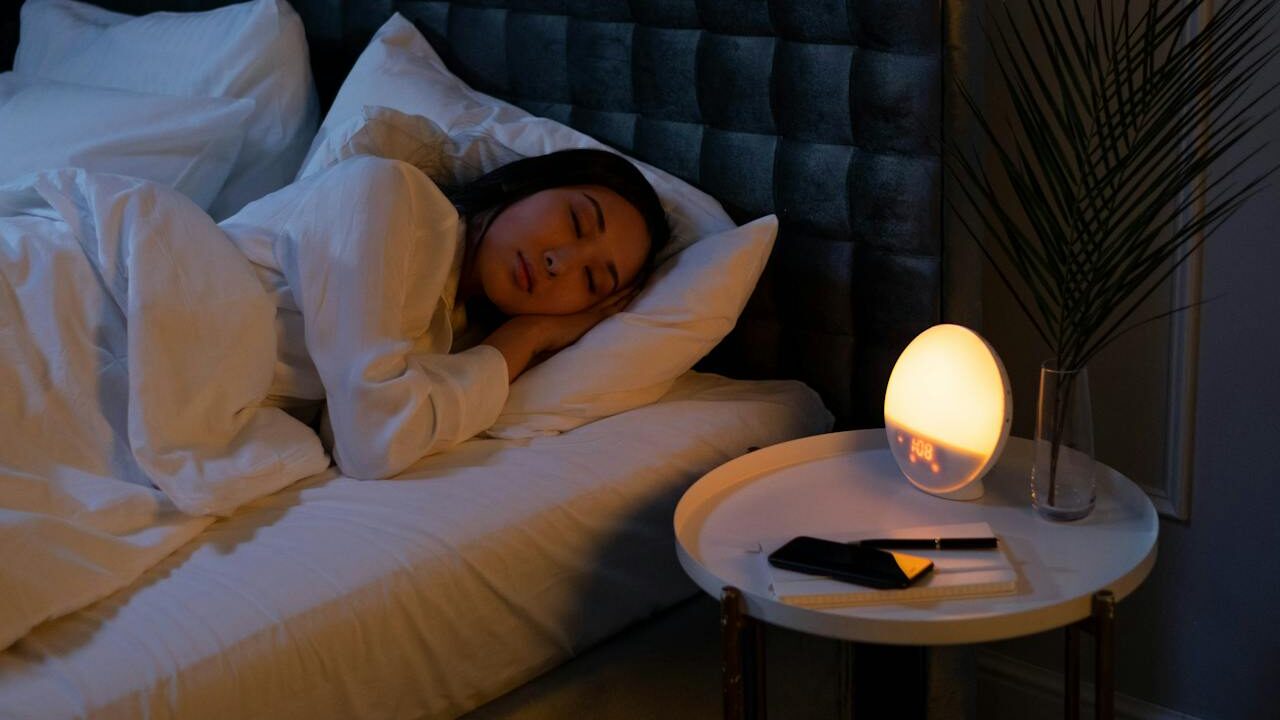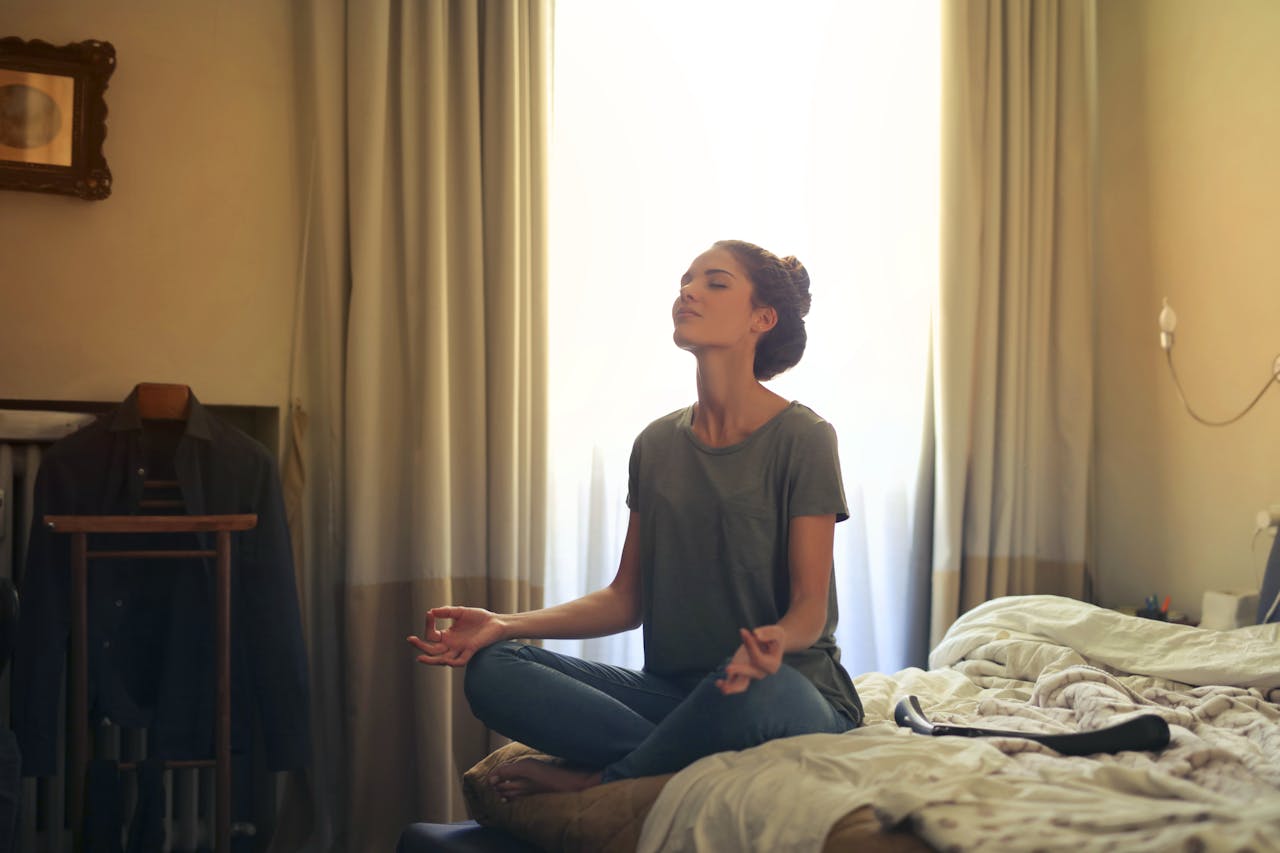
Better Sleep with Lemon Balm and 4-7-8 Breathing Technique
Sleep is a fundamental aspect of our health and well-being, influencing every part of our daily lives. Yet, in our fast-paced world, millions struggle to achieve a restful night’s sleep. This chronic lack of sleep can lead to a multitude of health issues, including increased stress, impaired cognitive function, and heightened risk of chronic diseases. Fortunately, natural remedies like lemon balm and the 4-7-8 breathing technique offer simple, effective solutions to improve sleep quality. In this comprehensive guide, we will explore how these methods work, their benefits, and how to incorporate them into your nightly routine for better sleep.
The Importance of Quality Sleep
Before delving into specific sleep remedies, it’s crucial to understand why sleep is so important. Sleep is a complex biological process that consists of several stages, each contributing to different aspects of physical and mental health:
- NREM (Non-Rapid Eye Movement) Sleep: This is divided into three stages:
- Stage 1: Light sleep, a transition period between wakefulness and sleep.
- Stage 2: Onset of true sleep, where heart rate slows and body temperature drops.
- Stage 3: Deep sleep, essential for physical restoration, immune function, and energy renewal.
- REM (Rapid Eye Movement) Sleep: This stage involves vivid dreaming and is critical for emotional regulation, memory consolidation, and learning.
Disruptions in these stages can lead to sleep disorders, affecting overall health and daily functioning. Ensuring a good night’s sleep is vital for maintaining mental clarity, emotional balance, and physical health.
Lemon Balm: A Natural Sleep Aid

Lemon balm (Melissa officinalis) is a perennial herb from the mint family, known for its soothing lemon scent and mild sedative properties. Used for centuries in traditional medicine, lemon balm is celebrated for its ability to promote relaxation and improve sleep quality.
How Lemon Balm Works
Lemon balm contains several bioactive compounds, including rosmarinic acid, flavonoids, and terpenes, which contribute to its calming effects. These compounds work in various ways to enhance sleep:
- Increase GABA Levels: Gamma-Aminobutyric Acid (GABA) is a neurotransmitter that inhibits neural activity, promoting relaxation and reducing anxiety. Lemon balm enhances GABA’s effects, helping to calm the nervous system.
- Antioxidant Properties: The antioxidants in lemon balm protect the body from oxidative stress, which can otherwise interfere with sleep patterns.
- Stress Hormone Regulation: Lemon balm helps balance stress hormones like cortisol, which, when elevated, can hinder the ability to fall asleep.
Scientific Evidence Supporting Lemon Balm
Several studies have demonstrated the sleep-promoting effects of lemon balm. A study published in the journal Phytomedicine found that participants who took a lemon balm extract reported significant reductions in insomnia symptoms and anxiety compared to a placebo group . Another study published in the Mediterranean Journal of Nutrition and Metabolism showed that lemon balm, combined with valerian root, significantly improved sleep quality and reduced the time it took to fall asleep .
How to Use Lemon Balm
Lemon balm can be consumed in various forms, including teas, capsules, tinctures, and essential oils. Here are some popular methods:
- Lemon Balm Tea: Steep 1-2 teaspoons of dried lemon balm leaves in hot water for 5-10 minutes. Drink 1-2 cups before bedtime.
- Capsules and Tablets: Follow the dosage instructions on the packaging, typically ranging from 300-600 mg per day.
- Tinctures: Add 1-2 ml of lemon balm tincture to a glass of water and consume before bed.
- Essential Oils: Add a few drops of lemon balm essential oil to a diffuser or dilute with a carrier oil and apply to the wrists or temples.
The 4-7-8 Breathing Technique for Sleep

The 4-7-8 breathing technique, developed by Dr. Andrew Weil, is a simple yet powerful method to promote relaxation and improve sleep. Based on the ancient yogic practice of pranayama, this technique focuses on controlled breathing to enhance the mind-body connection.
How the 4-7-8 Technique Works
The 4-7-8 technique involves a specific pattern of breathing that activates the parasympathetic nervous system, responsible for the body’s rest-and-digest response. This technique can:
- Reduce Stress and Anxiety: By focusing on the breath, this method helps calm the mind and reduce anxiety, which often prevents sleep.
- Slow Down the Heart Rate: The prolonged exhalation phase promotes relaxation and slows the heart rate, making it easier to fall asleep.
- Improve Oxygen Exchange: The breathing pattern enhances oxygen exchange in the lungs, promoting a sense of physical relaxation and well-being.
Steps of the 4-7-8 Breathing Technique
To practice the 4-7-8 breathing technique, follow these steps:
- Find a Comfortable Position: Sit or lie down in a comfortable position with your back straight.
- Prepare to Breathe: Place the tip of your tongue against the ridge of tissue just behind your upper front teeth. Keep it there throughout the exercise.
- Inhale: Close your mouth and inhale quietly through your nose for a count of 4.
- Hold Your Breath: Hold your breath for a count of 7.
- Exhale: Exhale completely through your mouth, making a whooshing sound, for a count of 8.
- Repeat: This cycle counts as one breath. Repeat the process three more times for a total of four breaths.
Benefits of the 4-7-8 Technique

Practicing the 4-7-8 breathing technique regularly can have several benefits beyond improving sleep:
- Enhanced Focus and Concentration: The technique helps clear the mind, improving focus and concentration.
- Emotional Regulation: Regular practice can enhance emotional resilience, making it easier to manage stress and anxiety.
- Overall Well-being: Improved oxygen exchange and relaxation response contribute to overall physical and mental well-being.
Scientific Evidence Supporting the 4-7-8 Technique
While direct scientific studies on the 4-7-8 breathing technique are limited, the principles it is based on have been well-studied. Controlled breathing techniques have been shown to activate the parasympathetic nervous system, reduce heart rate, and promote relaxation . Additionally, practices like yoga and meditation, which incorporate similar breathing exercises, have been extensively researched and proven to enhance sleep quality and reduce stress .
Combining Lemon Balm and the 4-7-8 Breathing Technique
While both lemon balm and the 4-7-8 breathing technique are effective on their own, combining them can amplify their benefits and create a holistic approach to better sleep.
A Step-by-Step Guide
- Prepare Lemon Balm Tea: About 30 minutes before bedtime, prepare and drink a cup of lemon balm tea. This allows enough time for the calming effects to take hold.
- Create a Relaxing Environment: Dim the lights, reduce noise, and eliminate distractions to create a serene sleep environment.
- Practice the 4-7-8 Breathing Technique: Once in bed, practice the 4-7-8 breathing technique. Focus on your breath and let go of any lingering thoughts or worries.
- Mindful Relaxation: After completing the breathing exercise, continue to breathe slowly and deeply. Focus on the sensation of relaxation spreading throughout your body.
Tips for Success
- Consistency: Practice this routine consistently every night to allow your body and mind to adjust and respond effectively.
- Avoid Stimulants: Refrain from consuming caffeine or engaging in stimulating activities close to bedtime.
- Healthy Sleep Hygiene: Maintain a regular sleep schedule, create a comfortable sleep environment, and limit screen time before bed.
Conclusion
Achieving restful sleep is crucial for overall health and well-being. Lemon balm and the 4-7-8 breathing technique offer natural, effective solutions to improve sleep quality and combat insomnia. Lemon balm’s calming properties combined with the deep relaxation induced by the 4-7-8 technique can create a powerful synergy that promotes restful sleep and enhances overall health.
By incorporating these practices into your nightly routine, you can enjoy the benefits of better sleep, reduced stress, and improved mental and physical health. Give this verified recipe a try, and experience the transformative power of natural sleep aids.
References
- Kennedy, D. O., Scholey, A. B., Tildesley, N. T., Perry, E. K., & Wesnes, K. A. (2002). Modulation of mood and cognitive performance following acute administration of Melissa officinalis (lemon balm). Phytomedicine, 9(6), 1063-1072. Phytomedicine
- Dimpfel, W., Pischel, I., & Lehnfeld, R. (2004). Effects of the proprietary extract of Melissa officinalis and Valeriana officinalis on the EEG in volunteers. European Journal of Medical Research, 9(9), 423-431. European Journal of Medical Research
- Brown, R. P., & Gerbarg, P. L. (2005). Sudarshan Kriya yogic breathing in the treatment of stress, anxiety,




